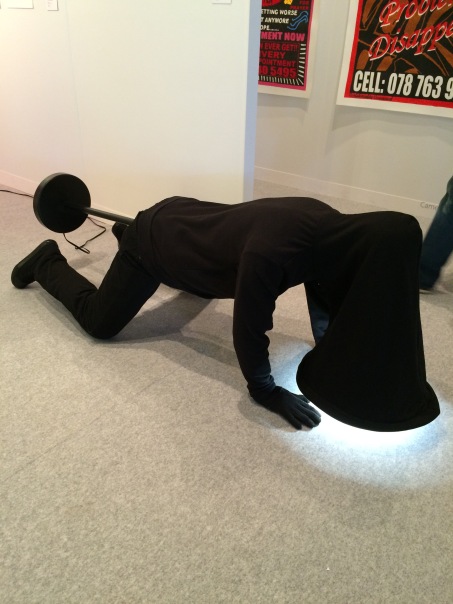
Last night I attended a lecture at The Rubin Museum of Art. Damien Echols was speaking. You might have heard of him. Echols, along with two others were known as The West Memphis Three. The West Memphis Three were wrongly convicted and imprisoned up to 18 years for a murder they did not commit. In addition to spending 18 years in jail, Echols was put in solitary confinement for 10 of those years. Now, The WM3 was guilty of something – of being bible belt outcasts. The three guys stood out for their penchant of Metal and dressing Goth. Their misfit status along with petty crime records made them an easy target to pin the deaths of three second grade boys. In 2011 after new evidence emerged, Echols, and the other two, Jessie Misskelley, Jr. and Jason Baldwin were released under the Alford Plea.
Now, I’m not here to really discus the West Memphis Three case in particular. How you, the reader feels about the unsolved murders is entirely up to you. As for myself, I have no doubt in my mind that innocent people are sent to jail every day in the U.S. There’s many factors that play into this. Here’s one. Reality is, if you’re from lower middle or poor class, chances are you’re guilty until proven innocent. If you have money for a damn good lawyer, or you have, let’s say connections to the judge, well then. More likely you’ll have a fighting chance. If you don’t have either, then you’re shit out of luck. In addition, laws vary state by state. Many a county basically survive off the fines of let’s say, DUI. People screw up, and the U.S. judicial system knows this. Thus the court system depends on people making bad life decisions, such as drinking too much, being in a bad relationship, or just not knowing what the hell they’re doing. Poor life decisions sometimes costs the civilian his or her life. So while yes, real criminals should be convicted to the fullest extent of the law, there are those right now, sitting in a cell for crimes not committed. As they say, the truth is not always black or white. Sometimes the truth is a big muddy gray tone.

Anyway, enough of the soapbox. I really went to the lecture to hear the viewpoint of an occult artist. It was during the late ’90s when I first heard about The West Memphis Three. A few months ago, an online Vice Magazine article re-peaked my interest. If you’re just getting started in learning about Magick, then you might want to check out what Echols has to say.
Echols began his lecture by discussing the word ‘occult’ itself. One of the meaning of the word ‘occult’ is hidden. The point he makes is, anything can be hidden. Anything you don’t have knowledge of can by mysterious. It doesn’t necessarily have to be of a spiritual nature. For example, you may not know what’s inside your shoe. It was this simple straight approach that made his point very clear. Then he went a bit about how he got into magick. He learned about Golden Dawn practices before he was incarcerated. Along the way, he discovered Buddhism. He then confirmed what I had also suspected. That Buddhist and Ceremonial magick practices go hand in hand.

Damien Echols discussed a bit about what life was in prison. He briefly discussed how the prison guards would use his family photos and tarot cards as emotional blackmail while in solitary confinement. This led to his daily practice of meditation. During his stay in prison two things happened. He was ordained into the tradition of Rinzai Zen, a tradition of Japanese Buddhism – and he met his future wife. Discussing his wife Lorri Davis, he mentioned because of his confinement, they couldn’t do the normal things that other couples take for granted. For example, see a movie, or go to a restaurant together. Despite the distance, he explained how they worked around that with other methods. She moved from New York to Little Rock and kept the same schedule as him. They would meditate together but synchronize at different locations. Echols then mentioned there would times when thinking about his wife, despite the hopelessness of prison, he would randomly break out into a smile.
The last part of the hour long talk was amusing. Some people within the Goth subculture can relate. He talked about how he hated beaches during the daytime, how sometimes one can be depressed during the summer, how he appreciate nighttime. It’s the little things that reminded oneself about being sightly different from what’s considered the norm. He hates Facebook, as he thinks it’s full of negativity. For social media he much prefer Twitter and Instagram. Echols doesn’t seem to be fond of the ‘food porn’ concept. Whenever someone posts a photo of their lunch, he immediately hits the unfollow button. Echols also doesn’t understand why people are so attached to their cellphones, and admitted to liking “uncool” bands like Nickelback.
Then he discussed his current residence, which is New York City. It takes someone like Damien Echols to make one wake up and appreciate NYC for what it is. Hearing him proclaim his love for the city was yet another reminder of what others take for granted. Take that you bitter NYC haters.
What struck me the most was his lack of bitterness. Perhaps it’s the effects of Zen Buddhism, but we can all learn from this guy. After a few traumatic experiences, it’s easy to be hateful, miserable and bitter. Too easy. What Damien Echols discussed in very few words how one can take extreme pain, and transform themselves into being a better person, on one’s own terms. Perhaps it’s a bit like ‘crossing the abyss’ as they discuss in Western Magick.
After the lecture was over, Echols went over to an older woman, graciously collecting a poem wrote about his experience. Afterwards, I checked out the sixth floor, looking at various installations, art and sigil work by Breyer/Genesis P-Orridge. Echols’ talk gave me some inspiration. However, I still can’t into Nickelback.

















































